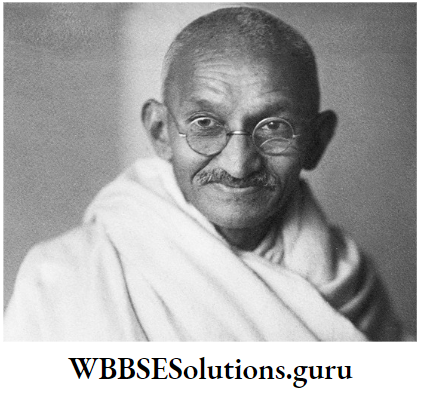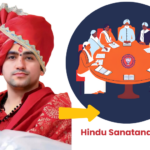By Tirthankar Mitra
KOLKATA: A recall of having taken baby steps clutching the fingers of Mahatma Gandhi and then wedded to Marxism will either be a rollercoaster life story or one spent in ideological confusion. But brought up in Abhay Ashram, Sodpur in West Bengal which the prophet of non-violence considered to be his second home, veteran journalist and political activist Barun Dasgupta does not disappoint in his autobiography “Smiritir Sarani Beye”. He died in 2021 at the age of 86.
Spending more than two decades at Sodpur Ashram in an ambience which was Gandhian, Dasgupta while putting some library books in order came across a copy of “What Marx Really Meant” by GDH Cole. Thereafter he joined Revolutionary Communist Party of India having come across Monimoy Bose, a RCPI activist at Sodpur Ashram. RCPI was involved in some Left adventurist actions in late 1940’s and Dasgupta was a part of that.
He became a close associate of Pannalal Dasgupta, the mentor of RCPI group. But ideology never clouded Barun Dasgupta’s vision nor did his lack of a formal education turn out to be a stumbling block to his becoming an ace newsman.
Dedicating this book to Pannalal Dasgupta and Nikhil Chakraborty, a doyen of Indian journalism confirms the reach out of Barunda as he was widely known cutting across the ideological divide. He was widely respected for his depth of understanding and intimate knowledge of the social convulsions going on in the North East region.
Known for his unbiased views and a nose for news, Dasgupta’s stints in Link, Patriot, Compass, The Hindu and of course in Mainstream and IPA, both of which were started by Nikhil Chakraborty, were years of glory for these publications and himself. He was sent by Pannalal Dasgupta to build up RCPI organisation in North Eastern states, a region which was not known much to the national media.
Affairs of the north eastern states became his forte. On first name terms with successive chief ministers of the states of this region, Dasgupta always “smelt a political development.’ His probity and writing skills made him a confidante of top notch politicians as well as grassroot activists. It was to Dasgupta that former president Fakruddin Ali Ahmed confided his remorse for having signed the proclamation for the infamous Emergency.
But it would be doing this activist-journalist an injustice to say that his area of expertise was confined to the north eastern states. In this tome, he is never acerbic but does not stop short of condemning the throwing five European managers in the furnace of Jessop factory in Dum Dum where RCPI had a trade union.
His list of condemnations does not end here. Late 1940s Dasgupta unhesitatingly dubs the Father of the Nation an autocrat when he asked Moulana Azad to step down as Congress chief when the latter seemed to differ in his views from his supreme leader.
But the boy who grew up among diehard Gandhians always had warm place in his heart for the prophet of non-violence and a hatred for communalism. He steers clear of virulence opposing it but does not feel the government of the day had gone on an overdrive to protect Mahatma Gandhi even after a bomb exploded at his meeting sending thereby a warning to his disciples who were then at the helm of governance.
But clearly Dasgupta has no holy cows. He fondly recalls that as a boy he caught Jawaharlal Nehru by a leg to drag him from the podium which Gandhi used to address meetings. Nehru narrowly retained his balance and children being dear to him, did not bear the boy any grudge. One shivers at the consequence of the act had it occurred now. Was not a man put behind the bars for asking a chief minister why were fertilisers becoming costlier.
But Dasgupta does not hesitate to take pot shots at the high and mighty. Be it criticising the killing of Sainbari or describing Jyoti Basu as a ” glorified mediocrity” he is true to what he believes. Personalities are no criterion to him.
Jointly edited by Anurita Mukhopadhaya and Nityananda Ghosh, the tome serialised in Jan Swartha Barta is a mine of information. For the living encyclopedia that Dasgupta was, this book attains the status of a collector’s item making mention of Indira Gandhi ‘s faith on astrology and the lessons of Vietnam war being put into practice in the liberation struggle of Bangladesh. (IPA Service)

 Hindu Preachers Mull Setting Up Sanatan Board On The Lines Of Waqf Body
Hindu Preachers Mull Setting Up Sanatan Board On The Lines Of Waqf Body 